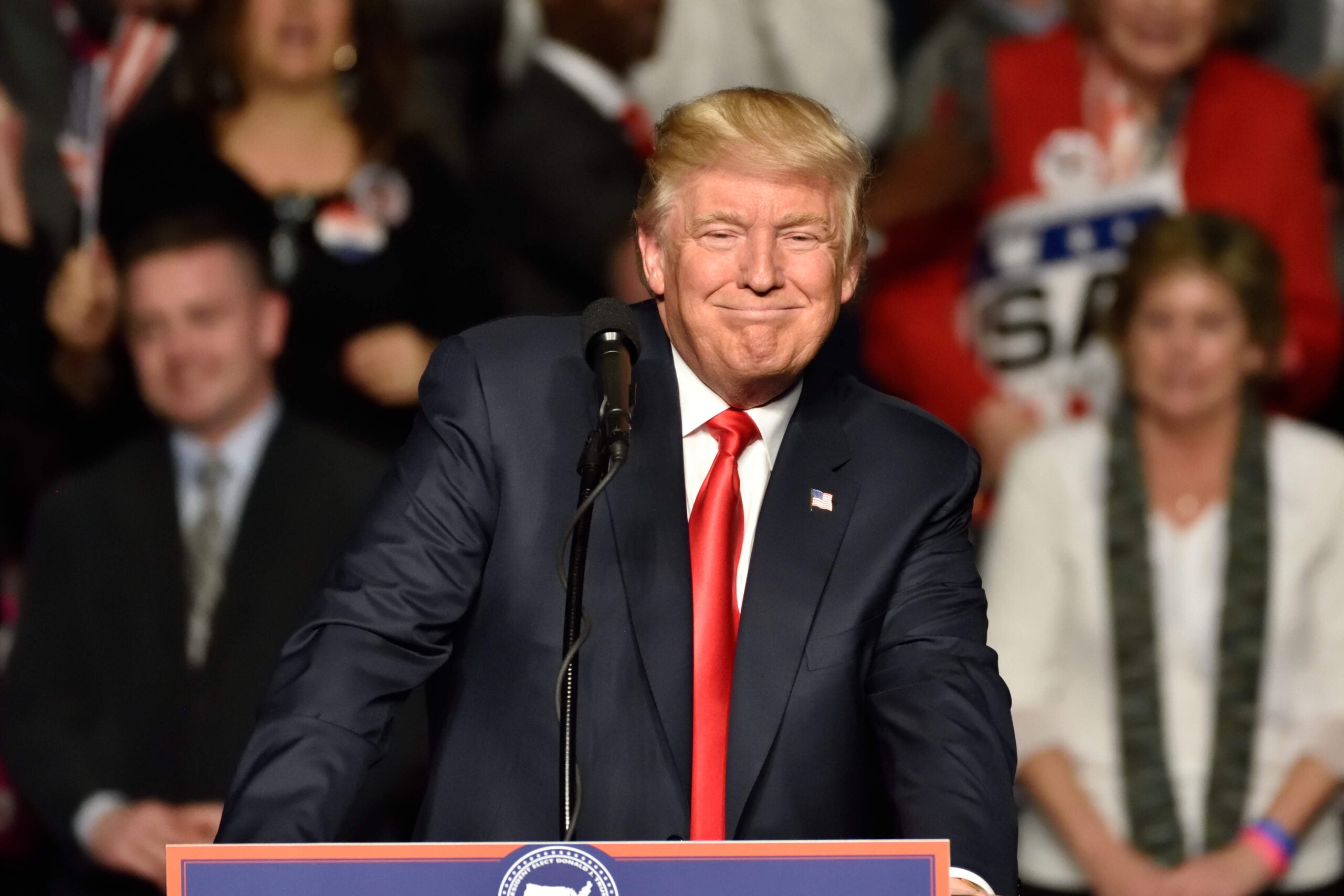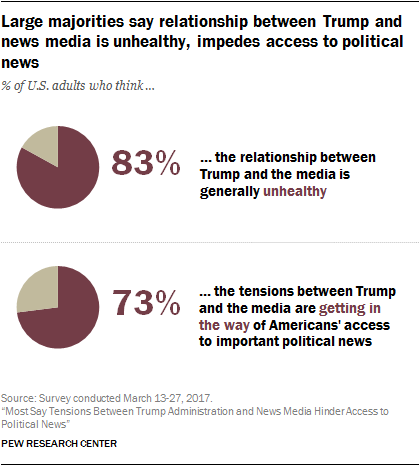
The US media is “the enemy of the people,” the US president Donald Trump declared after less than a month in office.
He dismissed mainstream outlets including CNN as “fake news”, tweeted about the “failing” New York Times and attacked the “false” coverage of him in the Washington Post.
Journalists haven’t held back in their response to his pointed criticism.
@realDonaldTrump Reporter for 23 yrs. I’ve saved lives, exposed corruption, put criminals in jail. Today you said I’m an enemy of the people
— Robert Anglen (@robertanglen) 18 February 2017
How well do you really know your competitors?
Access the most comprehensive Company Profiles on the market, powered by GlobalData. Save hours of research. Gain competitive edge.

Thank you!
Your download email will arrive shortly
Not ready to buy yet? Download a free sample
We are confident about the unique quality of our Company Profiles. However, we want you to make the most beneficial decision for your business, so we offer a free sample that you can download by submitting the below form
By GlobalDataIn February, Trump announced he would not attend the annual White House correspondents dinner with journalists on 29 April. No president has missed the dinner since 1981, when Ronald Reagan was unable to attend because he was recovering from being shot.
“This level of public vitriol directed at the news media by the president is unprecedented in American history,” said Mark Feldstein, a former CNN correspondent and professor of journalism at the University of Maryland.
But what are the broader implications of his attack on the press?
Newspapers are flourishing
Despite Trump’s claims that the New York Times‘ readership is “dwindling”, the paper added 276,000 net digital-only subscriptions in the final three months of 2016.
The jump was its biggest-ever since 2011.
Digital subscriptions reached 1.85m at the end of the year, taking print and online circulation to over 3m.
And the New York Times is not alone.
The Los Angeles Times and The Wall Street Journal have also reported record growth in subscriptions.
Pierre Omidyar, the eBay founder, earlier this month agreed to pledge $100m to support hard-hitting investigative journalism.
One of the first contributions will go to the International Consortium of Investigative Journalists, the Washington-based group behind the Panama Papers leak.
The Washington Post unveiled plans to expand its newsroom, announcing over 60 new hires as well as a funding boost for rigorous investigative reporting.
Jeff Bezos, the Amazon founder, who bought the Washington Post for $250m in 2013, continues to invest further in the paper, which saw online traffic increase by nearly 50 percent in 2016.
The Post’s coverage of the 2016 presidential race infuriated Trump when he was a candidate to the extent that he banned the paper’s reporters from covering his campaign.
Based on the incredibly inaccurate coverage and reporting of the record setting Trump campaign, we are hereby revoking the press credentials of the phony and dishonest Washington Post,” Trump wrote on his Facebook page in June 2016.
Since becoming president, he continues to limit press access when it suits him.
In February, the BBC, CNN, the New York Times, Politico and others were barred from attending an informal press briefing at the White House. Trump-friendly conservative outlets were welcomed.
“Nothing like this has ever happened at the White House in our long history of covering multiple administrations of different parties,” Dean Baquet, the New York Times’ executive editor said in a statement at the time.
We strongly protest the exclusion of The New York Times and the other news organizations. Free media access to a transparent government is obviously of crucial national interest.
But Trump’s behaviour towards the press is unpredictable, at times embracing the very newspapers he publicly scorns.
Trump can’t resist the media,” Frances Stead Sellers, a senior writer and editor at The Washington Post told Verdict. “After the healthcare debacle, what did he do? He called my colleague Bob [Robert] Foster at the Post.”
Trump is good for US journalism
Trump’s attack on the media means that accurate and properly fact-checked reporting is more important than ever.
Under Trump, we see a greater focus on objectivity, truth and a real awareness of how long it takes to produce strong stories,” Sellers added.
Charlie Beckett is a professor of media at the London School of Economics (LSE) and the founding director of Polis, a think-tank dedicated to debating the impact of journalism on society.
He agrees that Trump’s controversial policy proposals and erratic behaviour has provided a readership boost for a number of leading media outlets.
Trump has been fantastic business for all journalists in America — on both the left and right. People are so appalled but so gripped by what’s happening,” he told Verdict.
However, Trump’s presidency has led to an even more significant change in the way journalists operate.
Beckett believes that Trump’s volatile relationship with the media serves as a necessary nudge for many publications to improve the quality of their news gathering and connect to a broader base of Americans.
Many Americans have long felt they’ve been ignored by the liberal media. They [news providers] lost contact with a lot of the American public and they weren’t robust enough,” Beckett told Verdict. “The press needed to get their act together to make way for a new, rejuvenated American journalism.”
What do the public think?
Eighty-three percent of Americans believe the relationship between Trump and the media is unhealthy, according to a Pew Research Center survey published earlier this month.
Seventy-three percent believe the tensions between Trump and the media are getting in the way of Americans’ access to important political news.

Richard Peel, president of the Media Society, a press networking charity, argues that we can’t solely blame Trump for the media’s “drift towards sensationalism”.
Not only in the US but across the world, people struggle to access important political news because a vast amount of journalistic content is not fact-checked, particularly online.
Trump is simply taking advantage of a situation where we are seeing fake news,” he told Verdict. “A lot of the time online newspapers will run a story without verifying it is true because of the desire to make sure people read their publications. I think that lack of rigor is clear in the UK as much as the US.”
In other words, Trump’s relationship with the media doesn’t exist in isolation — his attack on the press is made possible thanks to the rise of online news circulating on social media.
“Now anyone has the potential to reach the public,” Courtney Radsch, director of advocacy at the Committee to Protect Journalists (CPJ) told Verdict. “That didn’t happen as of Trump’s election on November 11. The pace of technological change has accelerated over the past decade meaning individuals and leaders can get their messages directly out to the public.”
Does Trump have an impact on media outlets outside the US?
Press freedom is under threat across the globe — in countries like Russia journalists face severe punishment or even death for speaking out against the Vladimir Putin and his government. State-controlled television and newspapers are the norm.
In 2016, over 250 journalists were imprisoned and since 1992, 1,235 journalists have been killed for expressing views at odds with their respective governments.
Since Turkey’s presdient Recep Tayyip Erdogan took office, 180 media outlets operating across the country have been shut down.
Trump has sent a signal to countries such as Turkey, Ethiopia and Venezuela that “it is OK to abuse journalists,” according to Rob Mahoney, deputy executive director of the CPJ.
By contrast, it was thanks to the Obama administration that some countries responsible for routine attacks on members of the press changed their approach.
Bloggers imprisoned in Ethiopia were released ahead of a visit from Obama because he put pressure on the Ethiopian government,” Radsch told Verdict.
Journalists and political activists were also released from prisons in Vietnam.
We’ll keep working for the release of journalists who are unjustly imprisoned, including Jason Rezaian of The Washington Post, who is currently being held in Iran,” Obama said in May 2015.
And in January 2016, Obama made good on his promise — Rezaian was finally released after 18 months in a cell.
“What we see is that the charged rhetoric coming out of the White House emboldens autocratic leaders across the world,” Radsch added.
Should journalists be worried about the future of their profession under Trump?
So far, Trump’s public war on the media has been mostly a war of words.
The big worry is that his words could soon become enshrined in new laws limiting press freedom.
“I don’t diminish the chilling effect that rhetoric has, but right now we don’t see journalists imprisoned in the US. We don’t see libel suits being brought erroneously against the press,” Radsch told Verdict.
The fear is that Trump’s corrosive anti-press rhetoric will be translated into problematic policy,” she warned.
This piece is part of a series on what US president Donald Trump’s policies will mean for the wider world. Read what Trump means for the defence industry and Nato here.







